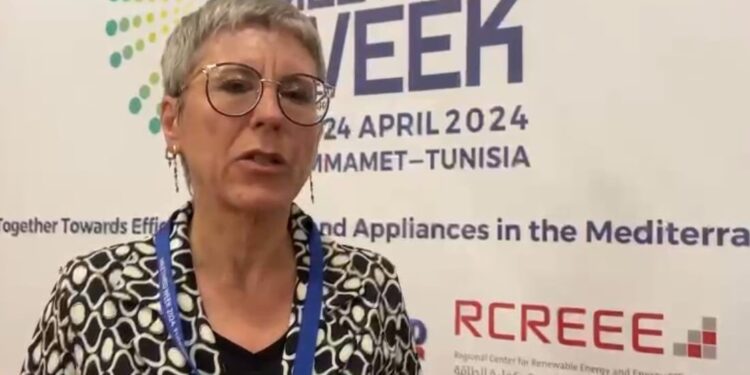Cairo – “Energy has brought wars, but we can find in the energy transition, in future sustainability, a way to overcome this conflictual situation as well.” Roberta Boniotti, secretary general of Medener, the Mediterranean Association of National Agencies for Energy Management, is convinced that tensions and conflicts in the Mediterranean, particularly on the eastern shore, will be able to ease in the medium to long term because “the green economy will be an opportunity for everyone, for the northern and southern parts of the Mediterranean,” she tells GEA, at the end of CSEW, the Cairo Sustainable Energy Week, underway in Cairo.
Boniotti, what is the balance of this summit in Egypt?
“These three days were very important for our Medener association, and therefore also for the Enea presidency, to establish relationships, especially with all the countries in the area, from North Africa to the Middle East. But there was also a lot of participation at the international level.”
What projects did you present during the event?
“We presented the successes of our MeetMed project, which aims to facilitate the energy transition in the Mediterranean region through mitigation actions. We are engaged in this project in the framework of the Union for the Mediterranean, an important political entity between Europe — all of Europe, not only Mediterranean countries — and North Africa and the Middle East. Our project, above all, wants to support actions to promote renewable energy and energy efficiency. Energy efficiency, in particular, is a very important part of the transition, of decarbonization. So investments in energy efficiency, less prevalent than to promote renewable energy, matter just as much for decarbonization and the transition. We’ve also had many meetings to fin financing and investment for energy efficiency, which is more difficult than promoting renewables.”
Have you found concrete answers?
“We are proceeding with organizing the Mediterranean Sustainable Energy Investment Forums, launched by our network together with RCREEE, the organizer of the Cairo Sustainable Energy Week. Certainly, we are making progress in this sense, bringing together policy-makers and investors at the international level, banks and investors at the national level, and the Islamic investment bank with our European banks, technicians, and all the interested associations.”
There has also been a lot of talk here in Cairo about green hydrogen.
“Sure. Outside of our project, we have just formed alliances for the development of green hydrogen, where our Italian agency Enea is particularly involved and, therefore, is leading a future network of experts, both at the level of Africa and the Middle East, as well as in Europe of course.”
There are wars and geopolitical risks that could affect this cooperation and transition. Is there a risk that everything will come to a standstill?
“Unfortunately, there are critical situations. We believe that with multilateralism, collaboration is important to determine an arrangement that can lead to greater stability in the Mediterranean through energy. As has been said these days, energy has brought wars, but we can find in the energy transition, in future sustainability, a way also to overcome this conflictual situation.”
Will the green economy be able to mitigate the risk of future conflicts?
“The green economy will be an opportunity for everyone, for the northern and southern parts of the Mediterranean. Many countries have taken steps forward in strategies and with a willingness to invest, especially collaborating with Italy and Europe. We favor this approach, although obviously, after that, bilateral agreements will be needed that will lead to actual trade agreements. However, it is also very important at the level of capacity building to establish and train generations of the future.”
English version by the Translation Service of Withub


![Il dibatitto su acciaio e transizione sostenibile organizzato da Eurofer in collaborazione con Euractiv [Bruxelles, 20 novembre 2024]](https://www.eunews.it/wp-content/uploads/2024/11/eurofer-241120-350x250.png)
![Rigassificatore Adriatico [foto: Floydrosebridge, Wikimedia Commons]](https://www.eunews.it/wp-content/uploads/2024/11/Lng_adriatic-350x250.jpg)
![Vertice Ue-Paesi del golfo arabico [Bruxelles, 16 ottobre 2024. Foto: European Council]](https://www.eunews.it/wp-content/uploads/2024/10/ue-gcc-350x250.png)



![Una donna controlla le informazioni sul cibo specificate sulla confezione [foto: archivio]](https://www.eunews.it/wp-content/uploads/2014/12/Etichette-alimentari.jpg)

